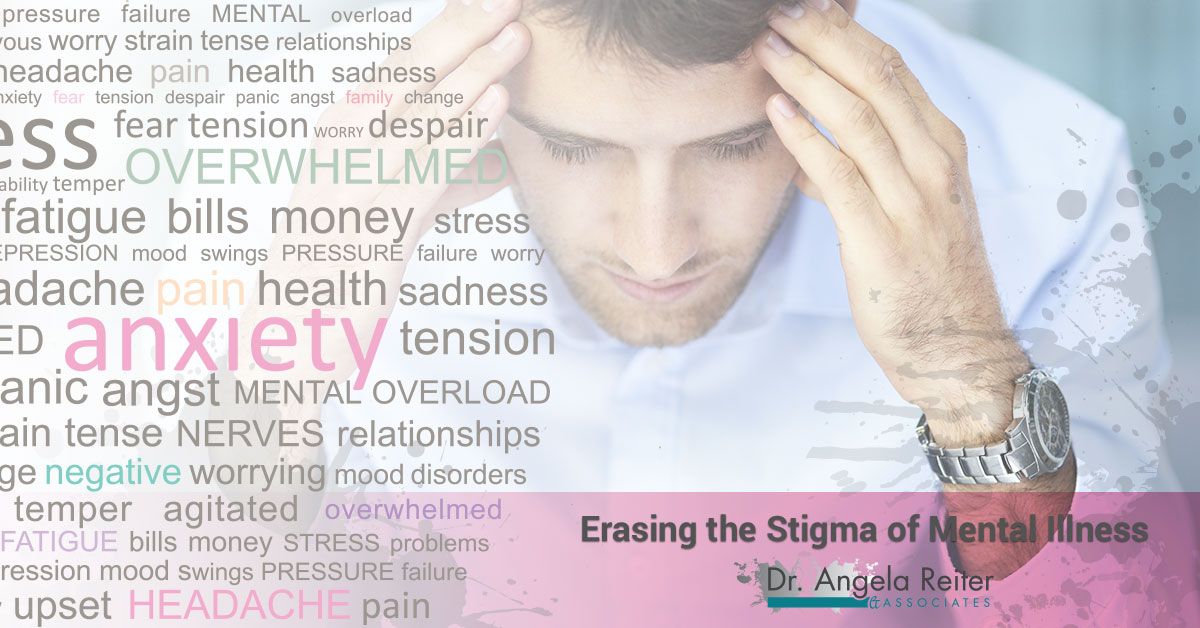
Erasing The Stigma Of Mental Illness
Why The Stigma Of Mental Illness Needs To Be Erased
Mental illness is a serious condition. According to the National Alliance on Mental Illness, one in five adults in the United States experiences mental illness in their lifetime. Not only is mental illness widespread, but it’s also treated like a condition that can be controlled. However, this is very much not the case. Psychological disorders are serious and debilitating and can sometimes make living feel unbearable. When somebody has cancer, rarely does anybody say “you’ll get over it,” or “you have so much to be happy about, though!”
Psychological disorders have a stigma attached to them that is very potent. The office of Dr. Angela Reiter and Associates is very aware of how stigmas can affect the prognosis of mental illnesses. Therefore, we believe in the importance of denouncing such stigmas. If you’re unsure of how not stressing enough importance on mental illnesses, or not viewing them as a “real” disease, can affect how we treat the diagnosed and ill population, we recommend you read today’s post.
Don’t Consider Their Illness Important
Mental illness, like physical illness, affects every facet of life. From how you feel to how you act, symptoms could often take over and make life feel unbearable. However, because of the stigma surrounding mental illness and how it isn’t a “real” illness, people who are affected may feel inhibited from seeking help from a psychologist, as they may feel their symptoms are a burden. Unfortunately, these symptoms are oftentimes very real, and will likely get worse if left untreated or unacknowledged.
Feel Like An Outcast
Experiencing symptoms of mental illness can oftentimes make people affected feel like an outcast, and that their symptoms aren’t “symptoms,” but personality traits. For example, someone with an anxiety disorder might just view themselves as “awkward” or “unliked.” In reality, they’re just exhibiting symptoms of a disorder that could be treated with Cognitive Behavioral Therapy or anti-anxiety medication, depending on the diagnosis and severity. When people feel like an outcast, their symptoms are likely only going to progress in severity.
Miss Out On Opportunities
An untreated mental illness will likely cause people exhibiting symptoms to miss out on exciting opportunities, like jobs, friendships, and relationships. For example, depression can cause people to feel worthless, especially if their symptoms are downplayed. This then affects how willing people affected are to participate in normal, opportunistic activities. Additionally, if somebody feels worthless, then reaching out for help might feel purposeless.
Too Afraid To Get Help
When there’s a stigma surrounding mental illness, then it’s much more unlikely that people will seek help. Either they’re afraid that their symptoms will be played off as “dumb” or worse, they’re afraid that a diagnosis will prove that there is something “wrong” with them. While nobody wants to be sick, having a proper diagnosis for an illness is the first step towards getting better and living life to the fullest, and most comfortable, extent.
Mental illnesses are important diseases that deserve the same amount of attention as ones that are physical. If you’re suffering from symptoms, seeking out help can mean the difference between suffering for years and a life lived happily and with ease. For an appointment with Dr. Angela Reiter & Associates, please contact us during our business hours

